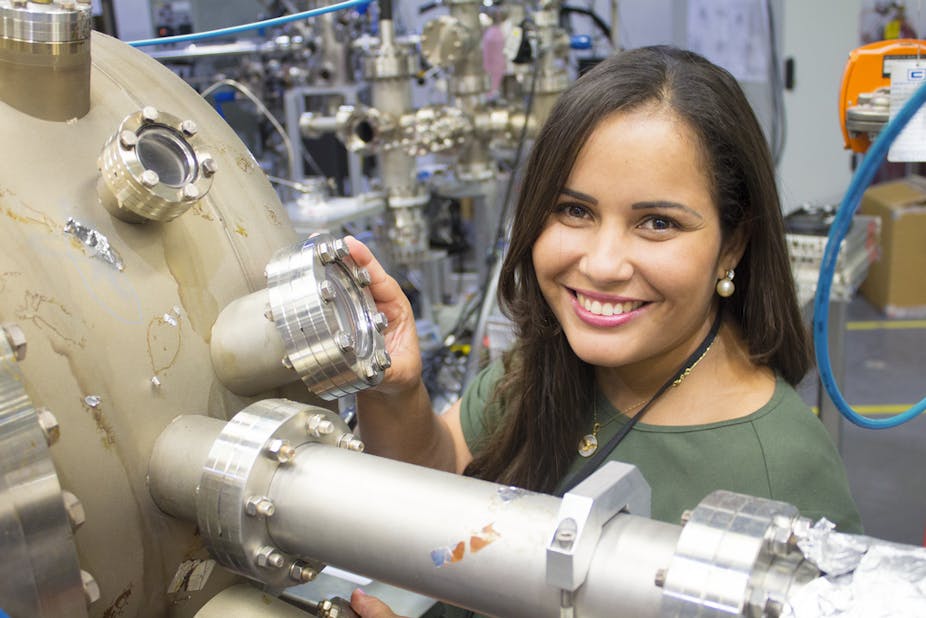One of the reasons Brazil took its loss to Germany in the World Cup semi-finals so hard was because many Brazilians wrongly believe the rest of the world only looks up to them for their footballing skills. Brazil has many world leading projects, but they can be overshadowed by the beautiful game.
During the opening ceremony of the World Cup there was a moment when the Walk Again Project of Brazilian neuroscientist Miguel Nicolelis was supposed to be showcased – it received less than three seconds of coverage. It is a world-leading project in which paraplegics are able use their thoughts to control an exoskeleton. But Nicolelis went to develop the project in the US because the right environment was lacking in Brazil for his research.
When it comes to higher education, Brazil is ranked 13th for global scientific productivity of papers published, but in terms of scientific innovation it is a very low performer.
There is a clear mismatch. Brazil produces very few patents – a surprising problem as Brazilians are known for their inventiveness in terms of getting around red tape. They even have a special word for this jeitino, or the little way. The government’s response to the lack of scientific innovation has been the most ambitious and largest scientific exchange project undertaken in the world – known as Science without Borders.
Lack of innovation
It’s worth explaining where the roots of the problem lie. I spent 12 years teaching in Brazil, and taught scientific method at PUC Minas university in Brazil about four years ago. I used a problem-solving approach, rather than the talking head and Powerpoint approach. At the end of the class, a young female student came up and thanked me for the class and commented that today was the first time she had had to think during her education. She was 19 years old.
When I asked her to elaborate, she told me that at school all learning was essentially done by rote. This, among other factors, explains why the Brazilian school system is consistently rated as one of the worst in the world in international rankings. Unfortunately, rote learning is common at undergraduate level as well as in school, meaning the education system in Brazil produces great technicians but not great innovators. Brazil has not produced one Nobel Prize winner despite being the scientific powerhouse of South America.
In response to this, the Science without Borders programme started in 2011 with 101,000 scholarships for undergraduate, postgraduate and post-doctoral researchers to study abroad in a fully funded scheme. Tuition fees, research costs, flights, medical insurance and generous scholarships are all paid for by the government.
The programme has just been renewed, and will provide another 100,000 scholarships from 2015. This is a massive investment in the future of Brazil. The idea is not simply for students to study abroad, but for them to learn the culture and language of the countries they study in and bring back knowledge to change Brazil for the better. Previously, Brazil only paid for approximately 400 students to do their PhDs abroad per year – now the number is thousands.
Independent thinking
My academic colleagues back in Brazil have been giving me feedback on the returning students, especially from the UK. At first, the students were surprised by how little contact time they had in the form of lectures. In Brazil, a typical science degree will have 30 or more contact hours per week. The importance of independent learning is something new for these undergraduate students.
Not being able to pass a module by only attending lectures was quite a shock. In Brazil, students must attend a minimum of 75% of their lectures by federal law. For many young adults this situation does not develop self-discipline – especially as many live at home with their parents while studying.
The undergraduate students on this scheme that I have met here in the UK have all been highly enthusiastic about their experiences. Many tell me they have come to see how things could be improved in Brazil – such as by fostering a greater sense of citizenship. But they also now appreciate the things that Brazil does well – such as putting the CVs of all Brazilian students and academics on a single government database called Curriculum Lattes.
I hope that Science without Borders will create conditions in Brazil where innovative minds will thrive and stay – and the Brazilian population will be as proud of their scientists as they (once) were of their footballers. Now that is a goal to applaud.

